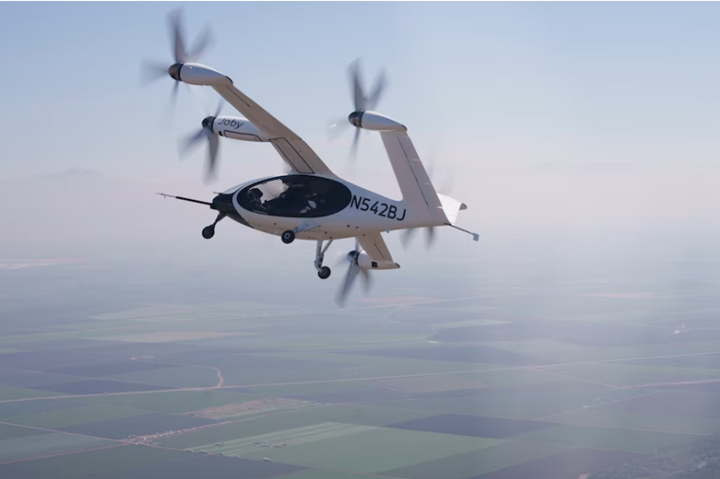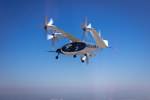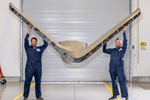Joby applies for eVTOL certification in Japan
Company intends to bring eVTOL technology to Japan, with a new agreement between Japanese and U.S. aviation regulators streamlining the process.
Share
Read Next

Photo Credit: Joby Aviation
(Santa Cruz, Calif., U.S.) has confirmed its formal application to certify its electric vertical takeoff and landing (eVTOL) aircraft design for use in Japan. The news comes as Japanese and U.S. regulatory authorities confirmed that they have reached an agreement to deliver a streamlined approval process for U.S. applicants who wish to validate their own eVTOL aircraft designs in the region.
Joby’s application to the Japan Civil Aviation Bureau (JCAB) for the validation of an FAA (Federal Aviation Administration) “type certification,” is believed to be the first of its type and is a necessary step to launching aerial ridesharing services in Japan. Joby plans to use its five-seat, piloted composite eVTOL aircraft to connect people and cities through fast, quiet and emissions-free flight.
“With 92% of residents living in urban areas, we have an opportunity to save people time in congested cities like Tokyo, Yokohama and Osaka while also reducing their impact on the environment,” JoeBen Bevirt, founder and CEO, Joby Aviation, says. “We strongly believe that a collaborative approach to regulation helps to foster greater safety and, by working hand-in-hand on certification, Japan and the U.S. are ensuring that both countries continue to play a leading role in the adoption of climate-friendly transportation.”
Joby has long-standing ties with Japan, having welcomed Toyota as a strategic partner in 2018. As well as lending its expertise on manufacturing process development and high-volume production, Toyota is also Joby’s largest outside investor, with nearly $400 million invested to date. Earlier this year, Joby also entered into a partnership with ANA Holdings Inc., Japan’s largest airline, to bring aerial ridesharing services to the Japanese market. Joby is a member of Japan’s Public-Private Conference for the Future Air Mobility Revolution, established by the Ministry of Economy, Trade and Industry to accelerate the adoption of aerial ridesharing in the country.
Related Content
-
Braided thermoplastic composite H2 tanks with co-consolidated molded boss areas to fit EV battery space
BRYSON project demonstrates possible designs, automated manufacturing and low permeability concepts, including EVOH liner and novel PPA matrix.
-
Lilium launches M&A process, targets eVTOL program continuation
Despite court-approved insolvency filings and beginning first investor briefings, Lilium remains fully focused on re-emerging following restructuring, setting its sights on fresh investment to support the Lilium Jet.
-
Honda begins production of 2025 CR-V e:FCEV with Type 4 hydrogen tanks in U.S.
Model includes new technologies produced at Performance Manufacturing Center (PMC) in Marysville, Ohio, which is part of Honda hydrogen business strategy that includes Class 8 trucks.



